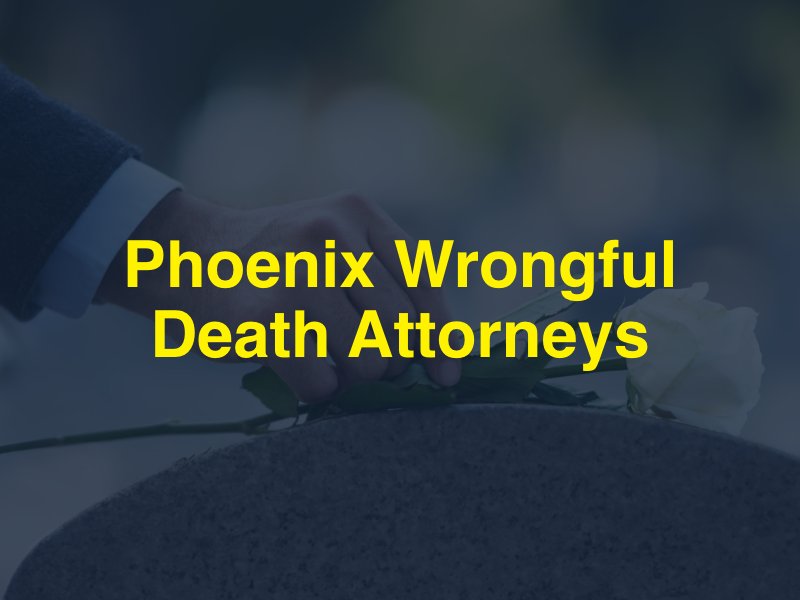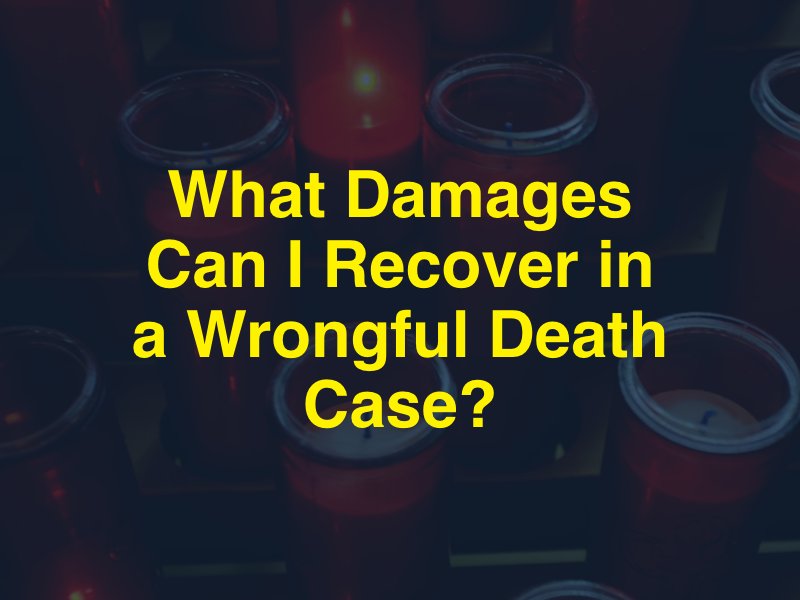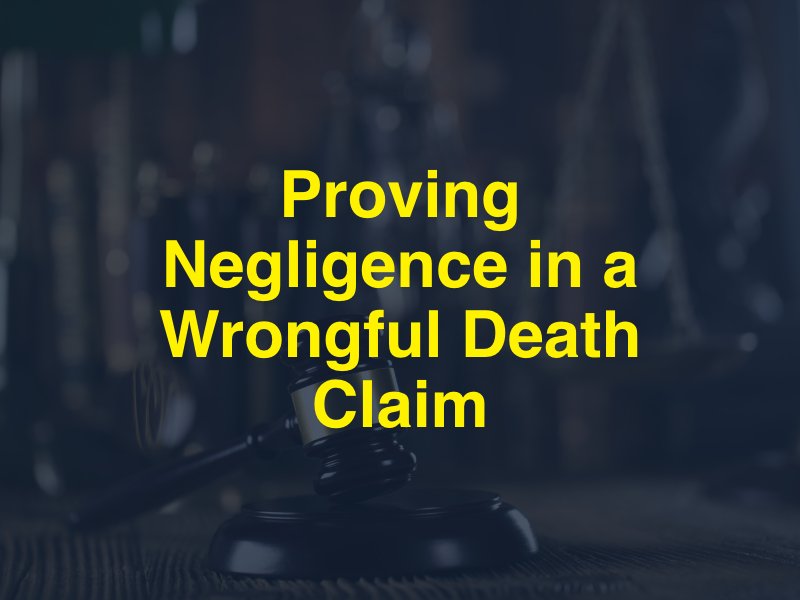When something happens to a loved one unexpectedly, it can be completely devastating and life-changing. No one can prepare for the death of someone they love, especially when the death itself was caused by someone else’s reckless behavior and could have been completely avoided in the first place. Here at Hastings & Hastings, we are on your side and will be with you every step of the way.
The sudden loss of a loved one can be an extremely traumatizing event. When that loss is due to someone else’s negligent behavior, it can only add to the grief. The pain of losing a loved one can often cloud the thoughts of the dependent who has been left behind. When a wrongful death happens, it can be easy to forget about your rights as a dependent. Reach out to our firm today and schedule a free case consultation with a Phoenix wrongful death attorney.
On a Wrongful Death Settlement of $1,687,682 We Saved Our Client $73,133.
You can see more of our case results here.
 David G. Hastings is the founder and president of Hastings & Hastings in Arizona. A graduate of the University of Arizona in both business administration and law, Hastings is dedicated to education, endowing scholarships for deserving law students and establishing the inaugural Bachelor of Laws undergraduate scholarship at the University of Arizona, the first of its kind in the country.
David G. Hastings is the founder and president of Hastings & Hastings in Arizona. A graduate of the University of Arizona in both business administration and law, Hastings is dedicated to education, endowing scholarships for deserving law students and establishing the inaugural Bachelor of Laws undergraduate scholarship at the University of Arizona, the first of its kind in the country.
With a career pivot in 1981, Hastings shifted from representing insurance giants to advocating for victims of negligence. His innovative approach to legal fees earned him the moniker “The Discounting King,” as recognized by the Arizona Business Gazette in 1993.
Beyond his legal work, Hastings is deeply committed to philanthropy, actively supporting organizations like Special Olympics Arizona, Phoenix Children’s Hospital, and engaging in charitable projects such as building homes for those who need them in Mexico with his family through 1Mission.
“Hastings and Hastings is the best! Thank you so much for all the hard work you did but most of all, for just being there when I had questions.” -Solit

No amount of money in the world is going to make the wrongful death of a loved one any better. But it can help ease the financial burden that is often left behind. As a dependent, you may be entitled to compensation. Surviving family members can file a wrongful death lawsuit against the negligent party. In some cases, that party can be a person, company, or entity.
A wrongful death lawsuit in Arizona (a.r.s. 12-611) can help surviving family members recover expenses and non-expenses loss that is a direct result of the reckless party. This is why it is important to act as quickly as possible after the loss of a loved one.
If you are looking for a wrongful death lawyer in Phoenix, you have come to the right place. Here at Hastings & Hastings, we know that when bad things happen like the sudden loss of a loved one, it can really turn your world upside down. We want to help you get through this difficult time by providing you with not only moral support, but also expert legal advice. Our team of legal professionals can get you the compensation you deserve. We will not rest until you are fully compensated for your loss.
As experienced Phoenix accident attorneys, it is our job to go after the wrongful party and bring you the justice you deserve. When your case settles our discount fee puts more money in your pocket. Please contact us as soon as you can to receive a free case evaluation with our Phoenix wrongful death attorneys.
When a death has occurred due to a negligent party, it can affect a lot of lives. Family members and friends are all affected by this loss. Unfortunately, not just anyone can file a wrongful death lawsuit. Arizona law gives the immediate family members of the victim(s) the right to file a wrongful death action against the negligent party (a.r.s. 12-612). The following parties may file wrongful death lawsuits:
The Phoenix wrongful death lawyers at Hastings and Hastings will act on behalf of the survivors to ensure that your case is as straightforward as possible during this difficult time.
If a loved one has been killed in an accident such as a car accident, you will need some time to grieve. But the sooner you file a wrongful death claim, the sooner you can pay for the expenses that often follow a tragic event. If your family member has been a victim of negligence, please seek help. As the survivor, you are the only one who can act on behalf of the departed. Seeking justice will give you peace of mind in a world that can seem turned upside down.
Our Phoenix accident attorneys handle a variety of wrongful death claims, often caused by:
These tragic causes stem from negligence, leading to preventable fatalities.

There are certain damages that you can recover if your loved one has been killed. Below are a few of the things that you may be able to be compensated for.
Losing a loved one is a devastating experience, and when the death is caused by someone else’s negligence, the pain can be even more unbearable. In such cases, you have the legal right to file a wrongful death claim to seek the following compensation for the damages caused:
Economic damages are designed to compensate the surviving family members for the financial losses sustained due to the wrongful death of their loved one. Here are some of the most common economic damages that may be recovered:
If your loved one incurred medical expenses related to the injuries that ultimately led to their death, you may be able to recover these costs in a wrongful death lawsuit.
Compensation for lost wages aims to reimburse the family for the income the deceased would have generated if they had lived. This may include earnings from employment, retirement accounts, investments, or other sources. Apart from lost wages, you may also be able to recover compensation for the loss of potential future income and employment opportunities that your loved one would have had if not for their untimely death.
Burial and funeral expenses are often steep, and you may be able to recover these costs as part of your wrongful death claim.
Non-economic damages are meant to compensate for the intangible losses that the surviving family members experience due to the wrongful death of their loved one. These can include:
This refers to the loss of the deceased person’s company, love, and care that the surviving family members would have enjoyed had the wrongful death not occurred. Courts typically award this type of damage to the spouse, children, or other close family members.
Protection damages are awarded to compensate the surviving family members for the loss of security and support that the deceased person would have provided.
Family members may be compensated for the loss of the deceased person’s love, care, and nurturing that they would have received, had the wrongful death not occurred.
The loss of emotional and spiritual guidance the deceased person would have provided to their family may also be compensated through moral support damages.
Pain and Suffering
These damages include emotional distress, anxiety, depression, PTSD, and the general loss of enjoyment of life.
Surviving dependents, such as children, may be awarded damages for the loss of the deceased person’s parenting, education, and life guidance.
Damages can be recovered for the loss of physical intimacy between the surviving spouse or partner and the deceased.
In some cases, punitive damages may be sought to punish the defendant for particularly reckless or malicious actions that led to the wrongful death. However, punitive damages are very rarely awarded in any type of personal injury case in Arizona that is based on negligence, even wrongful death claims.
In the state of Arizona, you have a limited amount of time to file a wrongful death claim. Survivors typically only have a statute of limitations of two years to file a claim in order to be fully compensated. This is why it is so important to file a claim as quickly as possible.

If you have lost a loved one and believe that their death was caused by the negligence of another person or entity, you may be wondering how to prove wrongful death. In order to succeed in a wrongful death lawsuit, there are four main components that you will need to prove:
The first thing you will need to establish is that the defendant owed a duty of care to the deceased. This means that they had a responsibility to take reasonable measures to prevent foreseeable harm.
For example, all drivers have a duty to operate their vehicles in a safe manner so as not to cause accidents.
The second element you will need to prove is that the defendant breached their duty of care. This means that they failed to take reasonable measures to prevent foreseeable harm. For example, if a driver runs a red light and hits another car, they have breached their duty of care.
The third element you will need to prove is causation. This means that you will need to show that the defendant’s breach of their duty of care was the actual cause of the victim’s death. For example, if a driver runs a red light and hits another car, causing the other driver’s death, they have caused the death by breaching their duty of care.
The fourth and final element you will need to prove is damages. This means that you will need to show that you suffered some type of loss as a result of your loved one’s death. For example, if the deceased was the breadwinner for their family, you would need to show how their death has impacted the family financially.
In Arizona, the doctrine of comparative negligence applies to wrongful death claims. This means that the plaintiff’s recovery will be reduced by their own percentage of fault. For example, if the plaintiff is found to be 20% at fault for the death, their recovery will be reduced by 20%.
The percentage of fault for each party is determined by the jury or judge, based on the evidence presented at trial. The jury or judge will consider all of the factors involved in the case, including the defendant’s level of negligence, the severity of the deceased person’s injuries, and the extent to which the deceased person’s death was foreseeable.
The aftermath of losing a loved one due to someone else’s negligence is a challenging time for the family involved. During such a stressful period, you might find yourself wondering if your wrongful death case will go to trial.
Not all wrongful death cases end up in a courtroom. In fact, the majority of these cases are resolved through negotiations between attorneys and insurance companies, resulting in a settlement. The decision to accept a settlement offer or take your case to trial is ultimately up to you and your attorney, who will advise you on the best course of action.
When a wrongful death case is first initiated, the negligent party’s legal representatives will often attempt to minimize their liability by offering a low settlement amount. This initial offer may not fully cover the damages and losses you and your family have suffered. Thus, it’s crucial to consult with an experienced wrongful death attorney to help evaluate the offer and determine the most appropriate next steps for your case.
One significant advantage of opting for a settlement is the speed at which you can reach a resolution. Trials can take months and in some cases even years to conclude. This can prolong the family members’ distress and uncertainty during an already challenging time, as they await the court’s ruling on their claim. Settlements, on the other hand, can be negotiated and agreed upon more quickly, enabling the family to gain closure and move forward.
Additionally, trials can be expensive due to various legal fees, including court costs, expert witness fees, and attorney’s fees. Choosing to go to trial might mean incurring a substantial financial burden to see the case through to its conclusion. In comparison, wrongful death settlements often entail less overhead and legal fees, meaning more money goes into your family’s pocket.
Another major consideration is the emotional aspect of going to trial. A trial can be emotionally taxing for all parties involved, particularly for grieving family members who may have to rehash painful memories and confront the responsible party in court. Settling the case outside of court can help in alleviating some of this emotional stress.
A skilled wrongful death lawyer will have a deep understanding of the complexities of wrongful death law and the expertise to accurately assess the damages that should be claimed. Elements such as medical expenses, funeral costs, loss of potential earnings, and emotional distress are just a few examples of what needs to be considered when determining the value of a wrongful death claim.
An experienced Arizona accident law firm knows how to get you every dollar you deserve in the event you have experienced the wrongful death of a loved one. At Hastings and Hastings, we have been serving Arizona for over 40 years, representing injured victims and their families by battling the insurance companies to make sure you get all the compensation you deserve.
When you work with Hastings and Hastings, you will always meet with a licensed Phoenix personal injury attorney for your free case consultation. Only a licensed attorney can give you legal advice to help you navigate your wrongful death case. Other firms try and cut corners to increase their bottom line. At Hastings and Hastings, we have been doing things the right way, not the easy way, for over 40 years. Don’t settle for anything less. Contact our law firm today to get started.

There are many different types of evidence that may be used to prove negligence in a wrongful death claim. Some common examples include the following:
Eyewitness Testimony: Eyewitnesses can provide valuable information about what happened leading up to the accident. Their testimony can be very helpful in proving negligence.
Documentary Evidence: This can include things like police reports, accident reports, medical records, and medical expenses. This type of evidence can help establish what happened and who was involved.
Photographic Evidence: Photographs can be very helpful in proving negligence. This may include photographs of the scene of the accident, photographs of injuries sustained, or photographs of property damage.
Expert Testimony: In some cases, it may be necessary to bring in an expert to testify about certain aspects of the case. For example, if the case involves a car accident, an expert may be brought in to testify about how the accident occurred and who was at fault.
Survival actions are brought by the personal representative of the decedent’s estate on behalf of the decedent. These actions are for losses that the victim sustained prior to their death. Damages recovered in a survival action belong to the decedent’s estate and are distributed according to the terms of their will, or, if there is no will, according to Arizona’s intestate succession laws.
Wrongful death claims, on the other hand, are brought by the surviving spouse, children, or parents of the decedent. These claims are for losses that the surviving family members have suffered as a result of the decedent’s death. Damages recovered in a wrongful death claim belong to the surviving family members and are distributed among them according to Arizona law. Learn more about the differences here.
In a wrongful death claim, the burden of proof is on the plaintiff to prove their case by a preponderance of the evidence. This means that the plaintiff must show that it is more likely than not that the defendant’s negligence caused the death of the deceased person.
The preponderance of the evidence standard is a lower standard of proof than the “beyond a reasonable doubt” standard that is used in criminal cases. This is because wrongful death claims are civil cases, and the goal is to compensate the plaintiff for their losses, not to punish the defendant.
The plaintiff can prove their case by presenting evidence that shows that the defendant owed the deceased person a duty of care, that the defendant breached that duty, that the breach of duty caused the death, and that the plaintiff has suffered damages as a result.
The evidence that the plaintiff presents can include things like witness statements, medical records, and photographs. The plaintiff may also need to hire an expert witness, such as a doctor or engineer, to testify about the cause of death.
If the plaintiff is able to prove their case by a preponderance of the evidence, they will be able to recover damages from the defendant. The amount of damages will be determined by the jury or judge, based on the evidence presented at trial.
The time it takes to resolve a wrongful death claim in Arizona can vary depending on a number of factors, including the complexity of the case, the willingness of the parties to settle, and the court system.
In general, most wrongful death claims take between 1 and 3 years to resolve. However, there are some cases that can take longer, especially if the case is complex or if the parties are unable to agree on a settlement.
Here are some factors that can affect how long your wrongful death claim takes to resolve:
Alhambra | Alta Vista | Arcadia | Central City | Central City South | Coronado | Downtown Phoenix | Eastlake Park | Garfield | Good Samaritan | Grandview | Homeland | Los Olivos | Maryvale Village | Moon Valley | North/Northwest Phoenix | South Phoenix | Story | Uptown | West Acres | West Phoenix | Willo | Woodlea